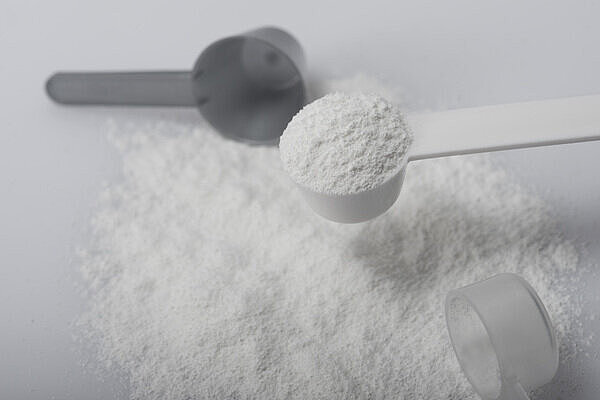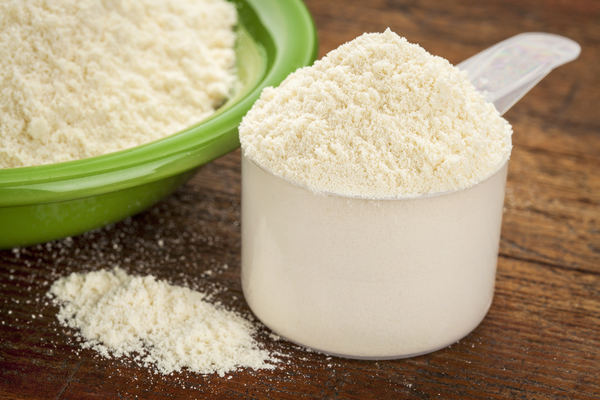Protein powder

What is protein powder?
Protein powder is a dietary supplement made from various protein sources. The most popular types are whey (whey), casein (milk protein) and plant-based alternatives such as soy, pea or rice protein. These powders are made by removing the non-protein parts from the food source and then drying the protein into powder form.
The role of protein in dog nutrition
Protein is an essential nutrient in a dog's diet. It supports numerous bodily functions, including:
- Building and repairing body tissues
- Production of enzymes and hormones
- Supporting the immune system
Given its importance, it is clear that an adequate protein supply is essential for a dog's health and well-being.
Benefits of protein powder for dogs
Supplementation for increased protein requirements
Some dogs, particularly active, pregnant or lactating dogs, as well as growing dogs or dogs with certain health conditions, may benefit from increased protein in their diet. Protein powder can be a convenient way to meet these needs without significantly increasing the volume of food.
Nutritional management and weight control support
For dogs that are prone to obesity, switching to a higher protein diet using protein powder can be helpful. Protein is more satiating than carbohydrates and can therefore help to better control weight without starving the dog.
Versatility and convenience
Protein powder can be easily added to regular food and offers a quick and convenient way to increase the quality and quantity of protein in a dog's diet. This is especially useful for owners who are short on time or want precise control over their dog's nutritional intake.
Disadvantages and precautions
Risk of overfeeding
One of the biggest dangers of using protein powder is the risk of overfeeding. Too much protein can lead to health problems such as kidney damage, especially in dogs with pre-existing kidney problems.
Choosing the right product
Not every protein powder is suitable for dogs. Some contain additives or sweeteners that can be harmful to dogs. It is important to choose a product that has been specially developed for dogs or whose ingredients are safe for dog consumption.
Allergies and intolerances
Some dogs may be allergic or intolerant to certain protein sources. Watch your dog carefully for signs of an allergic reaction, such as skin rashes or gastrointestinal discomfort, especially when introducing a new product.
Protein powder can be a useful addition to your dog's diet, especially during periods of increased protein requirements. However, it is important to consider the potential risks and ensure that you choose a safe, high quality product.
If you notice any signs of hypersensitivity or poisoning in your dog, you should see your vet immediately. We are not a substitute for a vet, but we try to be as accurate as possible. Every dog reacts differently and we recommend you get a second opinion or consult your vet if in doubt.
Stay healthy and take good care of your four-legged friend!😊
Similar to Protein powder
Dried egg white is, as the name suggests, dried egg white. It is produced from the liquid egg white by heating or freeze-drying. The water is removed and the protein is converted into powder form....
Eggs are the fertilized or unfertilized egg cells of birds, usually chickens. They consist of a shell, an egg white and an egg yolk. Eggs contain many nutrients such as proteins, fats, vitamins and...
What is whey protein powder? Whey protein powder is a powder made from whey. Whey is the liquid that separates from milk when it is processed into cheese. Whey contains about 20% of the protein in...
Protein is an organic compound consisting of amino acids. There are 20 different amino acids that can be combined in various ways to form proteins. The dog's body can produce some amino acids...



